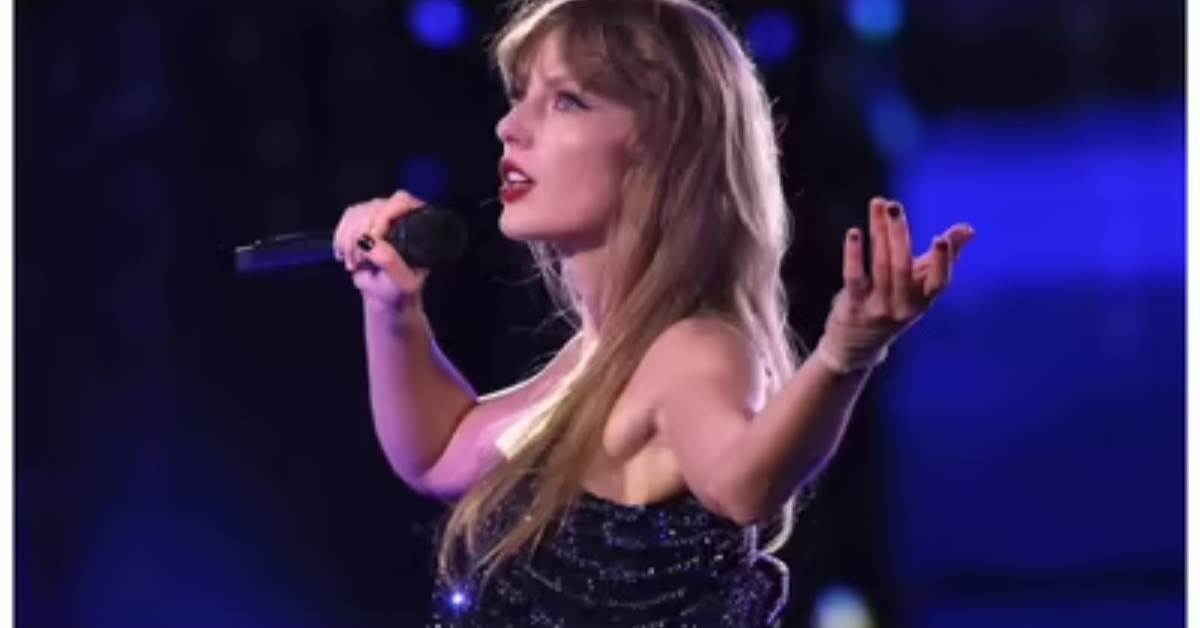Pop icon, songwriter, and industry powerhouse Taylor Swift has made headlines once again—this time not for a hit single or stadium tour, but for taking a historic step in artist empowerment. In a bold and strategic move, Swift has purchased back her entire music catalog—spanning her first six albums—for a reported $360 million.
The move not only marks a personal victory for Swift but also sets a new precedent in the music industry, challenging long-standing norms around ownership, rights, and creative control. As Taylor herself said, “All of the music I’ve ever made now belongs to me.”
Here’s everything you need to know about this landmark moment: from the background of her battle over masters, to what this buyback means for her, the industry, and millions of fans.
🎤 The Backstory: What Happened to Taylor’s Masters?
To understand the significance of this moment, we need to rewind to 2019, when Taylor Swift’s original record label, Big Machine Records, was sold to Scooter Braun’s Ithaca Holdings. That $300 million acquisition included the masters (original recordings) of Swift’s first six studio albums—from Taylor Swift (2006) to Reputation (2017).
Taylor publicly expressed her dismay over the sale, claiming she was never given the opportunity to purchase her own work. What followed was a high-profile, emotionally charged feud involving public statements, legal obstacles, and a massive wave of fan support under hashtags like #IStandWithTaylor.
💿 What Does Owning Her Masters Mean?
Owning one’s masters means full control over how the music is used—whether for streaming, licensing, films, commercials, or reissues. The label or owner typically earns the lion’s share of revenue generated from these uses.
In Taylor’s case, buying back her masters means she now:
- Controls how and where the original songs are used.
- Receives the primary profits from any licensing deals.
- Can preserve the integrity of her art without external interference.
- Gains a major asset and long-term source of income.
This isn’t just a win for Taylor—it’s a statement about artists taking back power in a traditionally label-dominated industry.
💰 The Deal: $360 Million and What It Covers
According to insiders, the $360 million deal covers the rights to:
- Her original six studio albums.
- All accompanying videos, live versions, and unreleased tracks under the Big Machine label.
- Global distribution rights across digital, physical, and streaming platforms.
The deal is rumored to have taken several months of negotiation and was facilitated through an independent investment group, ensuring no conflict with Swift’s current label, Republic Records under Universal Music Group.
🧠 Taylor’s Strategic Genius: The Re-Recording Era
Before buying back the masters, Taylor had already begun re-recording her old albums, releasing them as “Taylor’s Version”. Starting with Fearless (Taylor’s Version) in 2021 and followed by Red (Taylor’s Version) and Speak Now (Taylor’s Version), the strategy served two major purposes:
- Diluting the commercial value of the original masters held by others.
- Re-establishing control over her songs with refreshed versions loved by fans.
This strategy was both a financial and emotional success, with re-recorded albums topping charts and boosting her already massive cultural impact.
Now, with her original masters back in her hands, Taylor can decide if she wants to release them, preserve them, or archive them — the choice is entirely hers.
👩🎤 A Symbol of Artist Empowerment
Taylor Swift’s move to buy back her music is not just a personal milestone—it’s a powerful message to the music industry. For decades, artists have been disenfranchised by contracts that hand over creative control to corporations and executives.
By reclaiming her catalog, Taylor:
- Sets an example for young and upcoming artists.
- Puts artist rights and ownership at the forefront of industry discussion.
- Shows that it’s possible to challenge traditional systems with intelligence, persistence, and strategy.
Several artists including JoJo, Kelly Clarkson, Kanye West, and Prince have also spoken out in the past about the importance of owning their work. But Taylor’s achievement represents one of the most visible and expensive artist-led reclamations ever made.
👏 Fan Reaction: Overwhelming Support and Joy
As news of the buyback broke, Swifties flooded social media with emotional posts:
🗨️ “She fought for years and she won. Our girl owns everything now!”
🗨️ “Taylor Swift buying her masters is the ultimate boss move.”
🗨️ “From being denied her own songs to reclaiming them all. Inspirational.”
This emotional arc—from loss to reclaiming control—has made the victory feel like a shared celebration between Taylor and her fans.
🌍 Cultural and Industry Impact
Taylor’s decision will likely trigger major ripple effects in the industry:
- Record deals may evolve, offering better ownership clauses to artists.
- More established musicians might seek to buy back or renegotiate rights.
- New artists will negotiate smarter, inspired by Taylor’s story.
- Labels might have to rethink how they treat intellectual property.
In essence, this buyback could mark the beginning of a more artist-centric music industry.
📝 Taylor’s Own Words: “Now It Belongs to Me”
In a heartfelt note shared on her social media accounts, Taylor expressed her emotions:
“This moment is everything I’ve worked for. Every lyric, every melody, every sleepless night – now it belongs to me. I couldn’t have done it without my fans. Thank you for standing by me.”
It’s a full-circle moment for an artist who began as a teenager with a guitar and a dream, now standing as one of the most powerful voices in global music, not just creatively but also legally and financially.
✅ Conclusion: The Woman Who Took Back Her Voice
Taylor Swift’s $360 million buyback of her masters is more than a headline. It’s a powerful reclamation of voice, art, and autonomy. She didn’t just fight a legal battle; she reshaped how the world looks at music ownership.
In an industry where exploitation is too often normalized, Taylor Swift has written a new playbook—one where the artist is not just the voice, but also the owner of their story.
And for Swifties and creatives everywhere, that is the ultimate victory.



